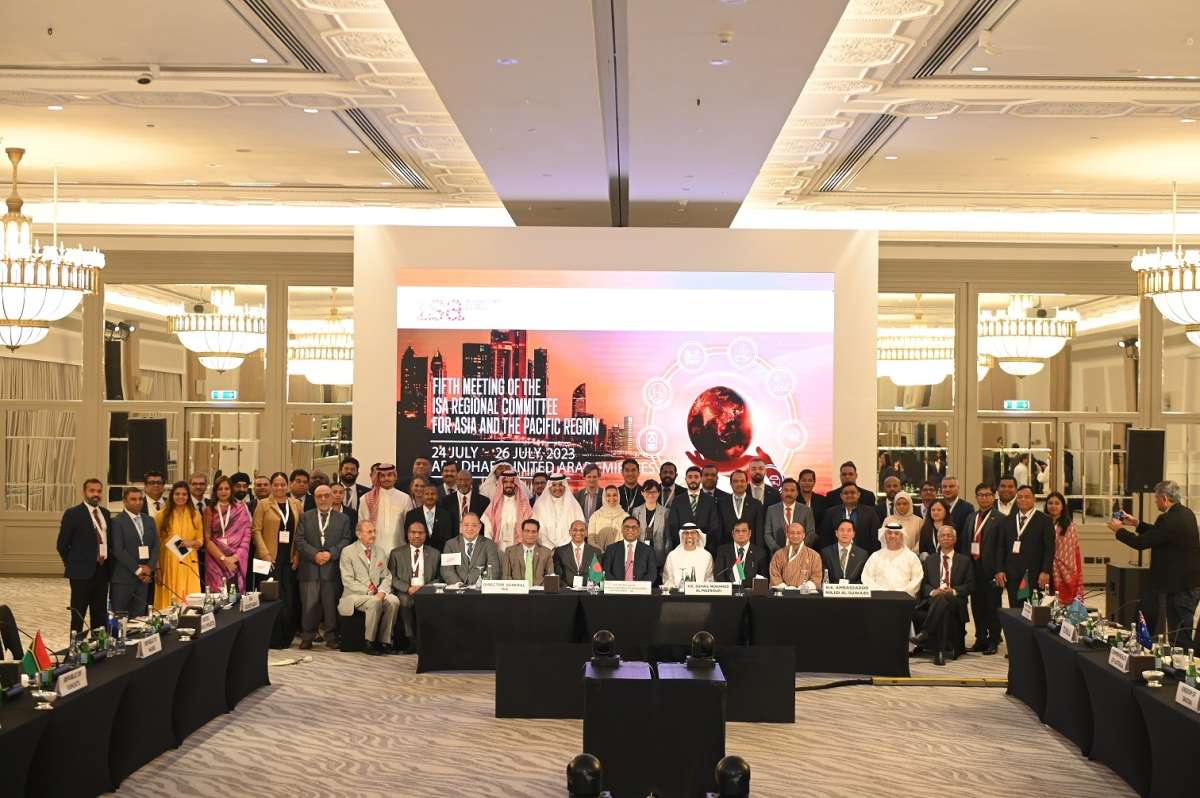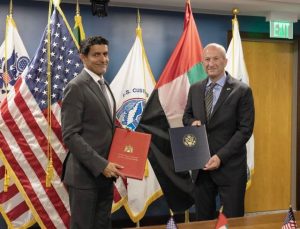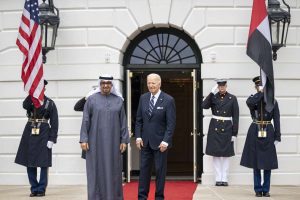Through international collaboration and cooperation with key partners like the ISA, we can help enhance energy access and uplift communities on the frontlines of climate change…reports Asian Lite News
The 5th Meeting of the Asia Pacific Region of the International Solar Alliance (ISA) convened global energy leaders in Abu Dhabi, UAE, to advance solar energy deployment, in alignment with the COP28 Presidency’s vision.
The urgent need to develop and deploy cutting-edge solar power solutions at scale, upgrade infrastructure and grids, and triple renewable energy capacity by 2030 was emphasised during the Meeting, with speakers underscoring the transformative actions needed to keep the world on a 1.5°C pathway and address the challenges posed by climate change.
Dialogues at the ISA’s 5th Meeting of the Asia Pacific Region, which attracted high-level participation of several small island and developing states (SIDS), were centered around mobilising support for the COP28 UAE Presidency’s commitment to fast-tracking a just energy transition. Key areas of focus included the promotion of climate mitigation technologies, enhancing socioeconomic opportunities, and ensuring no one gets left behind in the journey towards a sustainable future.
Delivering the keynote address, Suhail bin Mohammed Al Mazrouei, Minister of Energy and Infrastructure, said, “Solar power plays a pivotal role in shaping the future energy landscape, driving sustainable development, and combating climate change. As we set our sights on COP28, it is evident that solar energy is not just a part of the solution, it is the key to unlocking a low-carbon future. By harnessing the potential of solar technologies, we can make significant strides towards reducing greenhouse gas emissions and charting a course to limit global warming to 1.5°C.”
He added, “Hosting the ISA’s 5th Regional Meeting in Abu Dhabi reinforces our commitment to mobilising global support for transformative solar solutions. Through international collaboration and cooperation with key partners like the ISA, we can help enhance energy access and uplift communities on the frontlines of climate change.
“We must seize this moment to accelerate solar deployment, stimulate innovation, and ensure no one is left behind in the energy transition. By driving collaboration among nations and leveraging solar advancements, we can usher in an era of clean energy prosperity, foster sustainable economic growth, create jobs, and build resilient energy systems that benefit people and the planet alike.”
The pressing issue of climate finance was also addressed at the Meeting. According to the International Renewable Energy Agency’s ‘World Energy Transitions Outlook’ (WETO), US$150 trillion of investments in renewable energy solutions is needed to keep global warming below 1.5°C by 2050. While global investment across all energy transition technologies reached a record high of US$1.3 trillion in 2022, annual investment must more than quadruple to stay on the 1.5°C pathway.
Director General of the International Solar Alliance, Dr Ajay Mathur, said, “We are glad to be hosting the 5th Asia Pacific meeting in the UAE, a country that has one of the most affordable solar electricity worth only 2 and a half cent kilo-watt hour. This is a promising example of the future of solar energy in the Asia Pacific. Solar has already significantly exceeded the projections for it over the last decade, and demonstrated its efficacy in enabling energy access at the lowest cost to the most hard to reach populations, providing energy security for vulnerable developing economies and being a critical piece for accelerating energy transitions globally. Today’s global clean energy moment is a pivotal turning point to transform our ambitious energy commitments into action while we ensure the security of supply. As we approach the global stocktake and move closer to the 2030 deadline, while also seeing the intensifying climate impacts across the world, it is critical that we approach this challenge in a collaborative manner, bringing together our solutions and resources to address the challenge of ensuring universal access to clean energy, and commit to a work program to further address these challenges.”
The ISA highlighted the importance of diversifying renewable energy investments to benefit all regions of the world. Currently, investments are disproportionately concentrated in a few countries, with Least Developed Countries (LDCs) receiving less than 1 percent of the total. To transition to clean energy and ensure universal access to energy, the world needs to invest USD12.5 trillion in renewable energy by 2030, but current global solar investments are only approximately 10 percent of what is needed.
With the global cumulative solar PV installed capacity surpassing 1 terawatt (TW) and solar PV becoming the cheapest source of new electricity in many regions, the ISA emphasised the potential of increased solar deployment to drive further cost reductions. The industry’s concentration, however, calls for more countries to increase their manufacturing output to promote global resilience and sustainability in solar supply chains.
Access to energy remains a major challenge, particularly in climate frontline economies. The ISA acknowledged that 9 percent of the global population lacked access to electricity in 2021, and concerted efforts are required to achieve universal energy access by 2030.
The 5th Regional Meeting also covered ISA’s programmatic support to its Member Countries through its nine programmes for Scaling Solar Energy Deployment and Enhancing Energy Access.
Additionally, the ISA’s flagship initiatives, such as STAR-C, SolarX Startup Challenge, and Solar Finance Facility, were discussed alongside the ISA Country Partnership Framework and Private Sector engagements.
The ISA’s 5th Regional Meeting of the Asia Pacific Region in Abu Dhabi represents a crucial step towards a sustainable future powered by solar energy. By fostering international collaboration and innovative solutions, this event brings the world closer to achieving its renewable energy goals and safeguarding the planet for future generations.






